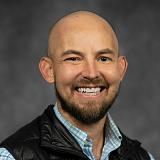
Hematology & Oncology Research
Another strength of the Utah program is the research enterprise. We have the benefit of being part of three major entities that maximize research opportunities:
- The Department of Pediatrics at the University of Utah is recognized internationally for its contributions to pediatrics research and has excelled at providing research support for trainees in all subspecialties.
- Primary Children’s Hospital is the pediatric tertiary care center for the Intermountain Healthcare System. Intermountain Healthcare has received national recognition as a model system for providing quality care at sustainable costs and maintains robust databases for clinical research and quality improvement studies. The core of Intermountain research takes place within 10 clinical programs including Oncology and Pediatrics.
- The Huntsman Cancer Institute (HCI) is a world-renowned cancer center, which holds Comprehensive Cancer Center designation from the National Cancer Institute and provides outstanding opportunities for research in both the basic science and clinical arenas. The HCI is credited for the discovery of several cancer predisposition genes, including FAP, and, along with the University of Utah’s genetics program, is known throughout the world as the premier institution for studying cancer genetics. In addition to having a Nobel Prize-winning molecular geneticist, the University of Utah is home to hundreds of researchers focused on studying the predisposition to, the prevention of, and the treatment of a variety of childhood and adult cancers. And, importantly, the HCI has a stated mission to make sure those treatments are available to all patients, including those from underserved populations. Working at the center of these three institutions provides unique research opportunities. One truly unique resource available for clinical research is the Utah Population Database (UPDB), a powerful tool for population-based research that provides access to information on over 11 million individuals dating back several generations to the 1700s. It is the only database of its kind in the United States and one of few such resources in the world and includes medical records, demographics, birth records, and death records, which are linked to an extensive set of family pedigrees. This database, along with several other powerful and well-supported research cores at the University of Utah and the HCI, has made Utah a destination for cancer researchers from around the globe.
The research enterprise supports and values the continued development and success of faculty, fellows, and other trainees through additional supports:
- The Clinical & Translational Science Institute (CTSI) offers multiple education and training opportunities such as an RO1 writing group and an Early Faculty Career Development Scholars program.
- The Office of Research Education provides research training and learning opportunities. Classes are offered conveniently in synchronous or asynchronous modes.
- The Office of the Vice President for Research manages several funding and award programs designed to pilot new research ideas or equipment, such as Faculty Fellow Awards and the Faculty Small Grant Program.
- Multiple cores at the university provide shared research resources and services. For example, the Study Design and Biostatistics Center (SDBC) is a commonly used core where clinical investigators can receive a variety of statistical support services.
Division Research
Our division offers the opportunity for fellows to develop their careers into physician/scientist in the field pediatric hematology, oncology, and BMT. We support the development of our fellows by carefully pairing faculty mentors and fellow mentees, identifying external mentors as needed. Our fellows have protected research time during the 2nd and 3rd years and pursue a variety of research projects (clinical, bench, applied-public health). Fellow studies can be supported through an internal small and large grant award program ranging from $500 to $10,000.
Eddie Zamora, our division research manager, is an invaluable resource to help fellows with grant applications, survey design, statistics and navigating the myriad resources available at our hospital for research.
Basic Science Research
Huntsman Cancer Institute including the new Primary Children's and Families’ Cancer Research Center is host to numerous research labs open to our fellows to complete research. A few labs that our fellows have had research experiences in include:
- Pulsipher Lab—Led by our division chief, Dr. Mike Pulsipher, the Pulsipher lab is focused on novel immunotherapies including CAR-T cells for hematologic malignancies.
- Schiffman Lab—Led by Dr. Josh Schiffman, the Schiffman lab is focused on hereditary cancer syndromes in humans and other mammals as well as novel therapeutics for patients with cancer predisposition.
- KB Jones—The Jones lab led by Dr. Kevin Jones, our lead orthopedic oncologist, is focused on studying mechanisms for sarcomogenesis in bone tumors.
- Cheshier Lab—The Cheshier lab led by Dr. Sam Cheshier, a pediatric neurosurgeon, is focused on immunotherapy of pediatric brain tumors.
- Stewart Lab—The Stewart Lab is focused on development of novel therapeutics and Zebra fish models for pediatric brain tumors.
- Young Lab—The Young Lab studies autoimmune side effects of immune checkpoint inhibition and impact on patients.
- Myers Lab—The Myers Lab explores extracellular signaling particularly in the Sonic Hedgehog pathway and implications for cancer development.
A comprehensive summary of all of the labs at Huntsman Cancer Institute can be found here.
Clinical Research and Population Sciences
A number of our team is actively involved in clinical research in many projects. A few to highlight are:
- Kirchhoff Research Group—Led by Dr. Anne Kirchhoff, the Kirchhoff research group, studies the long-term health and well-being of pediatric and AYA cancer survivors including healthcare costs, vaccine adherence and quality of life.
- Cancer Predisposition—Dr. Luke Maese leads our pediatric focused cancer predisposition group focused on cancer surveillance and improving outcomes for patients with cancer predisposition syndromes.
- Oncofertility—Dr. Doug Fair and Dr. Joe Letourneau lead one of the most robust oncofertility counseling programs in the nation including a focus on novel techniques to preserve fertility and fertility preservation advocacy.
Prior Fellow Research Projects
We recognize that our fellows have a wide variety of research interests and are proud of our ability to support them regardless of what their interest might be. Past fellows have pursued research in basic science labs, clinical research, population sciences, medical education and quality improvement. A summary of recent research projects is listed below:
| RESEARCH PROJECT TITLE | FELLOW |
|---|---|
| Design of novel gated CAR-T cell | Dr. Candi Deimundo |
| Variation in cancer predisposition syndrome testing for pediatric brain tumors | Dr. Trevor Memmott |
| Variation of oncofertility resources amongst socioeconomic groups | Dr. Caleb Hocutt |
| Using metalobolomics to study autoimmune side effects of immune checkpoint inhibition | Dr. Bar Devald |
| Development of novel educational tool to train pediatric residents in vascular anomalies | Dr. Ann Marie Mojica |
| Utilizing bioinformatics to facilitate information transfer between different EMR | Dr. Elaine Fan |
| Variation in access to palliative care resources between different ethnic groups | Dr. Batool El-Atoum |
| Assessing coagulopathy risk in pediatric leukemia patients | Dr. Maria Carter |
| Study of safety for early discharge of pediatric AML patients | Dr. Sara Mednansky |
| Utility of Family-Centered Rounding in the inpatient pediatric oncology setting | Dr. Billy Thomsen |
| Development of novel CAR-T therapy for neuroblastoma | Dr. Fiorella Iglesias |



Contact Us
Billy Thomsen, MD fellowship director, or Joann Chavis, fellowship program coordinator, at ped.education@hsc.utah.edu or 801-662-5700.
Division of Pediatric Hematology/Oncology
Primary Children's Hospital
100 North Mario Capecchi Drive
Salt Lake City, UT 84113
